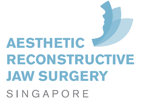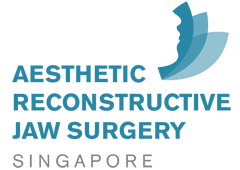Share this
Corrective Jaw Surgery in Singapore– public or private hospital?
on November 25, 2016

Last week, after a rather lengthy consultation, a patient asked me whether it is better for her to do her corrective jaw surgery in a public or private hospital. This is not an uncommon question but every time I hear that, I will pause for a while before answering. The critical issue here is of course what your definition of “better” is.
Public hospitals in Singapore today are known as “restructured” hospitals. They are owned by the State, but are operated privately. Charges levied by the hospitals for the various medical treatment are set in accordance with the cost of providing that service. Citizens and permanent residents are eligible for a lower set of fees subsidized by the State, which is applied directly, resulting a lower bill to be paid by the patient. Doctors in restructured hospitals are salaried employees although most of the senior staff are also paid an additional component base on the revenue they generate for the hospital. Restructured hospitals are also teaching hospitals where junior doctors and medical students learn their ropes, guided by the consultants.
Specialist doctors in private hospitals in Singapore (except for one), however, are not salaried employees. They operate their clinics in adjoining medical centres and admit their patients to the hospital for treatment. In essence, private hospitals in Singapore function more like a facility provider, offering use of their wards, operating rooms, laboratory, radiology, etc, and the specialist clinics are independent businesses.
So, which is the better option?
I think the most important factor is to be able to find a doctor who is not just competent but is also someone that you can relate to. That doctor may be working in a restructured hospital or running his own private practice. However, there may be other considerations that may affect your final decision. A specialist in private practice will almost cost more, although the doctor may not necessarily take home more than his restructured hospital counterpart. Running a private practice in Singapore is expensive. A clinic space in a private hospital’s medical centre costs about $30000 in rental a month. In addition, medical equipment are expensive, as are medical supplies. Nursing staff salaries are another major overhead that needs to be paid. So, why do specialists go into private practice instead of working in restructured hospitals? It is mostly for the autonomy to practice their craft the way they like without the constraints of working in a hierarchical organization. For this reason, private specialist clinics are usually more efficiently run and contact with the specialist is more personal and immediate.
However, this strength can also be a weakness. Without the constraints of institutional oversight, a private specialist can “go rogue”. Some overcharge their patients, others may experiment with unsubstantiated treatment. There is a lack of checks and balances and the patient has to make his own judgment as to whether to trust what is being said. Which brings me back to the point that there has to be trust between the doctor and the patient.
Why not just go to a restructured hospital? The checks and balances that are in place in a restructured hospital minimizes the risk of non-evidence based treatment but the same checks and balances also blunts efficiency. Being a teaching hospital also means that the patient will be managed in part by personnel who are undergoing training still and are not fully qualified. There is a hierarchy involve. The first contact is usually the house officer who is a fresh graduate. He will do the clerking, checking of blood results, setting iv, etc. He then reports to a specialist trainee who is a doctor with a few years of experience in the specialty. This trainee in turn reports to a consultant who is a qualified specialist. Some cases need to be presented to the department for teaching purposes and this adds another layer to the workflow. Overall, the patient has to deal with a team rather than a specific specialist.
While orthognathic surgery is not considered a cosmetic procedure, patient’s seeking corrective jaw surgery are also motivated by the aesthetic enhancement that comes with the functional correction. Discussion of aesthetic outcome is an important part of the treatment planning process. While functional correction can be achieved by following objective guidelines, cosmetic improvement is arbitrary and subjected to the aesthetic sense of the patient and the surgeon. Sometimes, what the surgeon think is aesthetic may not be perceived as such by the patient and vice versa. Again, chemistry between the surgeon and patient is crucial, regardless of private practice or public hospital.
Corrective jaw surgery is an elective procedure and the patient has the luxury of choice and time. For patients who are unsure, I routinely encourage them to seek a second opinion, especially in a restructured hospital so that they can compare the options available to them.
Share this
- Jaw Surgery (93)
- Dental Implants Singapore (90)
- Orthognathic Surgery (48)
- Replacing Missing Teeth (26)
- Missing Teeth Options (23)
- Underbite (23)
- Bone Grafting (21)
- Costs (18)
- Facial Aesthetics (18)
- Aesthetics (17)
- dental implants (16)
- corrective jaw surgery (15)
- BOTOX (11)
- Dermal Fillers (11)
- Wisdom teeth (10)
- Fixed Implant Dentures (8)
- Loose Dentures Singapore (6)
- Medisave (6)
- sleep apnea (6)
- Braces (5)
- Dental Pain (5)
- Dentures in Singapore (5)
- Loose Teeth (5)
- Tooth Extraction (5)
- jaw deformities (5)
- bimax (4)
- bone graft (4)
- maxillomandibular advancement (4)
- all-on-4 (3)
- bimaxillary protrusion (3)
- chin implant (3)
- facial asymmetry (3)
- full mouth dental implants (3)
- genioplasty (3)
- immediate implant (3)
- removal of an integrated dental implant (3)
- third molars (3)
- wisdom tooth surgery (3)
- My Dentures Don't Fit (2)
- VME (2)
- bone graft healing (2)
- distraction osteogenesis (2)
- medical tourism (2)
- obstructive sleep apnea (2)
- orthodontics (2)
- plastic surgery (2)
- CT guided dental implants (1)
- Double jaw surgery (1)
- Invisalign (1)
- Periodontal Disease (1)
- Permanent Dentures Singapore (1)
- before and after photos (1)
- facial trauma (1)
- fractured dental implant (1)
- oral appliance therapy (1)
- root canal treatment (1)
- veneers (1)
- vertical maxillary excess (1)
- September 2019 (2)
- July 2019 (2)
- May 2019 (2)
- August 2018 (1)
- October 2017 (1)
- September 2017 (2)
- August 2017 (1)
- June 2017 (2)
- May 2017 (4)
- April 2017 (1)
- March 2017 (1)
- February 2017 (3)
- January 2017 (3)
- December 2016 (1)
- November 2016 (2)
- October 2016 (4)
- September 2016 (9)
- August 2016 (5)
- July 2016 (11)
- June 2016 (14)
- May 2016 (6)
- April 2016 (2)
- March 2016 (1)
- January 2016 (7)
- December 2015 (10)
- November 2015 (4)
- October 2015 (9)
- September 2015 (7)
- August 2015 (1)
- July 2015 (6)
- June 2015 (3)
- May 2015 (7)
- April 2015 (5)
- March 2015 (8)
- January 2015 (5)
- December 2014 (7)
- November 2014 (7)
- October 2014 (6)
- September 2014 (8)
- August 2014 (5)
- July 2014 (7)
- June 2014 (8)
- May 2014 (9)
- April 2014 (10)
- March 2014 (6)
- February 2014 (8)
- January 2014 (3)
Subscribe by email
Email subscription



Comments (1)